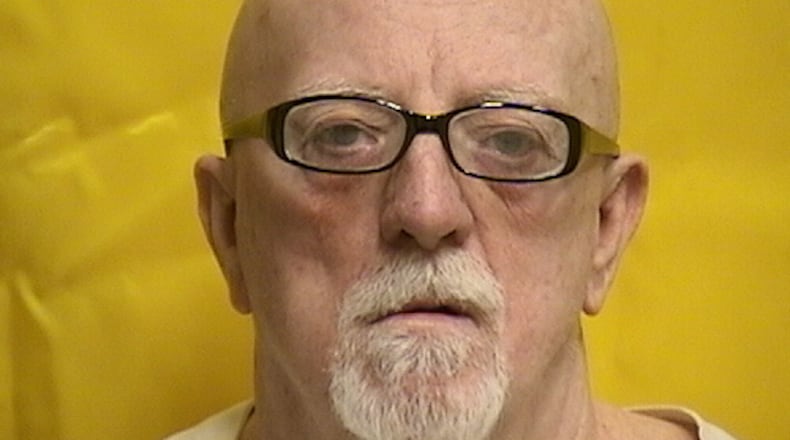Last month, a Visiting Butler County Common Pleas Judge James Brogan granted Ketterer’s July 2021 motion for post-conviction relief regarding his sentence, citing the the new law, and resentenced Ketterer to life in prison with no possibility for parole for killing 85-year-old Lawrence Sanders.
Ketterer, now 72, is incarcerated in the Warren County Correctional Institution. He pleaded guilty to aggravated murder and other charges and was sentenced to death by a three-judge panel that heard aggravating and mitigating factors in a sentencing-phase hearing.
In a written confession to Hamilton detectives, Ketterer said Sanders was a longtime acquaintance who had invited him into his home on the day of the homicide in February 2003.
Ketterer told police he hit Sanders in the head with an iron skillet, then repeatedly stabbed him with scissors and other kitchen utensils after Sanders was unable to loan Ketterer money for some pending court fines.
Ketterer then stole Sanders’ car, old coins and other possessions.
According to trial records, Ketterer, who had a long history of substance abuse and psychiatric problems, abandoned the car in Hamilton after crashing it into a garage, and traded some of the victim’s stolen possessions for crack cocaine.
In the decision, Brogan said “this court finds that (Donald) Ketterer suffered from bipolar disorder on Feb. 24, 2003, when Lawrence Sanders was murdered … and because of his bipolar disorder, lacked substantial capacity to conform his conduct to the requirements of law.”
Ohio law already prohibited executions if an offender, “because of a mental disease or defect, lacked substantial capacity to appreciate the criminality of the offender’s conduct.”
State law also allows for a “not guilty by reason of insanity” plea, though that is rarely invoked and difficult to prove.
Then, in 2014, an Ohio Supreme Court task force on the death penalty released a report with 56 recommendations for changing capital punishment in Ohio. Recommendation No. 8 outlined a ban on executions if offenders had specific mental illnesses at the time they committed their crimes. By contrast, the “mental disease or defect” language could also apply to inmate mental illnesses developed or exacerbated after incarceration.
The legislation that took effect in April provides a one-year window for current death row inmates to file to have their death sentences revoked because of the serious mental illness clause. Inmates who successfully appeal their sentences are removed from death row but still face life in prison without parole.
Opponents of the law, including the Ohio Prosecuting Attorneys Association, argued that every death row inmate would file an appeal, further clogging up the courts.
Butler County Prosecutor Michael Gmoser said it is his job to uphold the law and there is no appeal to the decision.
“While I was not the prosecutor in the Ketterer case at the time of his conviction, I am never the less responsible to the law as delivered by the justices by the Supreme Court of Ohio. I have and will follow the decision for which there is not appeal.”
The Associated Press contributed to this report
About the Author


